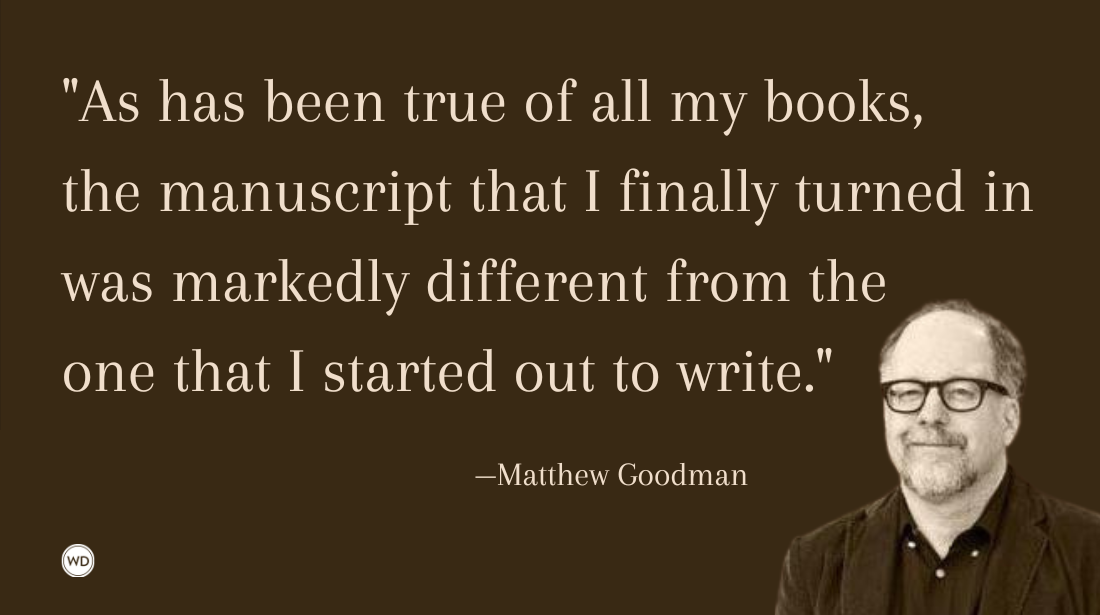Tell vs. Tale vs. Tail vs. Telltale (Grammar Rules)
Learn when to use tell vs. tale vs. tail vs. telltale with Grammar Rules from the Writer’s Digest editors, including a few examples of correct usages.
Homophones are always fun, and that's what we're looking at again this week. So let's identify the telltale differences of tell, tale, tail, and, well, telltale. It's an important one to get right, because you don't want to mix up "telling someone" with "tailing someone."
So in this post, let's unlock the spell of tell, tale, tail, and telltale.
Tell vs. Tale vs. Tail vs. Telltale
As a verb, tell most commonly refers to communication. For instance, a person might "tell a story," "tell a lie," or "tell the group what they learned while researching a topic." In fact, some people may do all three of those things at once. Tell can also be a noun used in certain situations (usually poker) in which a person's behavior or mannerisms give away their intentions. For instance, pitchers in baseball work to avoid telegraphing what their next pitch will be to batters by trying to wind up the same for different styles of pitches.
Tale is a noun that's another name for a narrative. While many people consider tales fiction, the term actually refers to nonfiction accounts as well. However, some people may refer to a nonfiction account as a likely tale, meaning they don't believe it is completely accurate. This is one strength of first-person narratives in fiction, because readers can debate whether the narrator's tale is true, embellished, or completely fabricated.
Tail can be used as a noun, verb, or adjective. As a noun, tail usually refers to the end of a process or actual thing (as in the rear end of a body). For instance, the tails of a tailcoat are at the bottom and rear end of the coat. A tail can also refer to a person who follows and/or watches behind another person, and that act can be described through the verb "to tail" someone else. The adjective has the same meaning as the noun, as in the "tail end of a conversation" or "tail feather of a bird."
Telltale, as a noun, can be used as a synonym to "tattletale." That is, a telltale is an informer. A telltale can also be an instrument that gives a visual clue about the state of something, like a piece of string indicating the direction of the wind. As an adjective, telltale also indicates something. For instance, a person's muddy boots may be a telltale sign they cut through a person's garden instead of using the sidewalk.
Make sense?
Here are a few examples:
Correct: Tell me the story of your life.
Incorrect: Tale me the story of your life.
Incorrect: Tail me the story of your life.
Incorrect: Telltale me the story of your life.
Correct: The gardener told us a tale that involved pirates and unicorns.
Incorrect: The gardener told us a tell that involved pirates and unicorns.
Incorrect: The gardener told us a tail that involved pirates and unicorns.
Incorrect: The gardener told us a telltale that involved pirates and unicorns.
Correct: Her cat swishes his tail when annoyed.
Incorrect: Her cat swishes his tell when annoyed.
Incorrect: Her cat swishes his tale when annoyed.
Incorrect: Her cat swishes his telltale when annoyed.
Correct: The ink stains on his hands and shirt are the telltale signs of a writer.
Possibly still correct: The ink stains on his hands and shirt are the tell signs of a writer.
Incorrect: The ink stains on his hands and shirt are the tale signs of a writer.
Probably incorrect: The ink stains on his hands and shirt are the tail signs of a writer.
Correct (using all): Her smile was a telltale sign that she had quite a tale to tell about the peacock tail.
So keeping these straight? Think of "yell" as a loud way to "tell" somebody something. If "tail" indicates the bottom, then maybe "fail" is a winning connection word for this use. That leaves "tale" as the story, which someone may relay after they have some "ale" (if they're the appropriate age). And then "telltale" is just a fun word to say that indicates something.
*****
No matter what type of writing you do, mastering the fundamentals of grammar and mechanics is an important first step to having a successful writing career.
Robert Lee Brewer is Senior Editor of Writer's Digest, which includes managing the content on WritersDigest.com and programming virtual conferences. He's the author of 40 Plot Twist Prompts for Writers: Writing Ideas for Bending Stories in New Directions, The Complete Guide of Poetic Forms: 100+ Poetic Form Definitions and Examples for Poets, Poem-a-Day: 365 Poetry Writing Prompts for a Year of Poeming, and more. Also, he's the editor of Writer's Market, Poet's Market, and Guide to Literary Agents. Follow him on Twitter @robertleebrewer.








